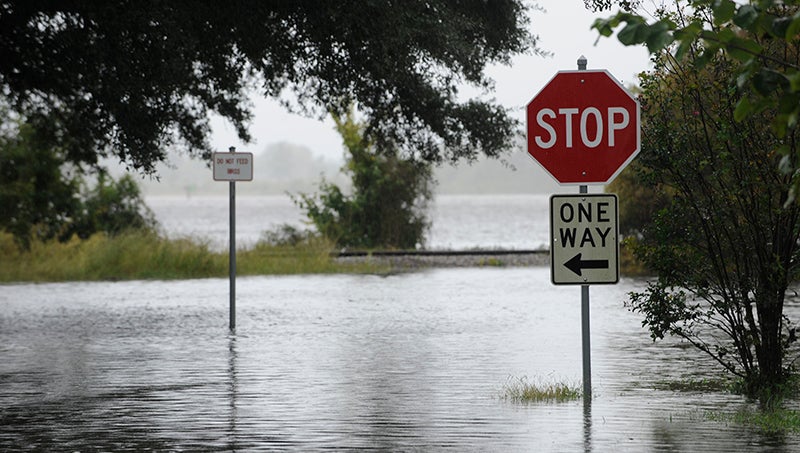What’s to compare it to?
Published 8:48 am Wednesday, September 12, 2018

- HOW TO HELP: A special training at Chocowinity EMS this weekend will teach everyday citizens how they can help respond in the aftermath of a disaster such as Hurricane Florence. (DAILY NEWS)
Eastern North Carolina has certainly seen its share of hurricanes. Floyd, Bertha, Fran, Irene, Matthew — there have been some doozies over the years.
The benchmark was always Hurricane Hazel: “the river wasn’t nearly as high as Hazel;” “the winds were much worse during Hazel.” Those from the area likely grew up listening to Hazel stories, about how the water was chest deep at the corner of Water and Bonner streets in Washington; how it spilled onto Main Street and children canoed down the street for fun.
Hazel was the worst of the worst in more recent memory, but there’s a big difference here. Hazel hit hard then sped through North Carolina, traveling 55 mph. It made it from North Carolina to D.C. in four hours, then drove even farther north, all the way to Canada.
Florence, however, doesn’t appear to be going anywhere. It very well may stall out over eastern North Carolina, bringing the area not only an initial major hurricane impact, but also a few extra days of tropical-storm conditions to boot.
Because of this — the threat of a massive storm surge, followed by the threat of major flooding from all the rain — Beaufort County Emergency Services issued a voluntary evacuation order for all Beaufort County residents and visitors, strongly encouraging anyone who can to leave to leave and get out of the path of the storm. Tuesday, Emergency Services issued a mandatory evacuation order for those living in areas that are prone to flooding.
But what does a mandatory evacuation really mean? Will county officials come and drag a person out of their house before the storm? No. Will they give someone a fine for not leaving when told? No, they won’t.
What Emergency Services officials are doing is telling people in the strongest possible way that they need to leave for their own safety and security. What some people don’t realize is that once a Category 4 storm like Florence has hit, if an emergency happens, if a person’s home is flooding or a roof is lost, there is nothing emergency responders can do. They cannot go out when hurricane-force winds are blowing; they cannot go out when much of the area is inundated with water. No one can or, rather, no one should. There will be no one coming to the rescue.
So a mandatory evacuation, and a voluntary evacuation, is less a demand to leave a place and more a demand that everyone take a good hard look at the many good reasons to leave. No person can protect property with his body. Destruction will happen whether one is there to witness it or not.
The next generation will likely grow up listening to Florence stories. Let’s make them about the community banding together to support each other in the aftermath, not horror stories about people who should have left, but didn’t.
If you can leave, leave. It’s really that simple.





